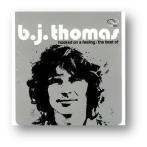An article by Brian Palmer
From the National Speakers Bureau ~ Email National Speakers Bureau
Competition for the time and attention of business people is fierce as they are being asked to do more, often with less. They are more aggressively scrutinizing the uses of time and resources including consideration of events put on by associations and other membership organizations. Literature focusing on the evolution of the associations, their offerings, and their events, suggest this trend is not apt to abate. Developing and maintaining the reputation for excellent speakers will help increase the odds that people will return to and recommend your events year after year.
There are two misconceptions about choosing great speakers. The first should be viewed on a continuum: at one end is the belief that speakers should work within the industry being  addressed. At the other are those that believe that the most value resides with bringing in outsiders, to provide a unique perspective. Everyone who has a part in selecting speakers is somewhere on that continuum. There are those who prefer not to listen to the ideas of someone who has not “walked in my shoes.” At the other end, there are those who wish to populate their learning experiences with the people on the other end who believe that they know just about all there is to know in their industry and want to get an outsider’s perspective. I often see associations getting pulled in either direction, largely due to the makeup of the group or community making the selection and often due to that one person who feels particularly strong. I’ve observed both types in action and believe that it’s wise to have your speakers from a variety of spots along the spectrum and not cluster them in one area.
addressed. At the other are those that believe that the most value resides with bringing in outsiders, to provide a unique perspective. Everyone who has a part in selecting speakers is somewhere on that continuum. There are those who prefer not to listen to the ideas of someone who has not “walked in my shoes.” At the other end, there are those who wish to populate their learning experiences with the people on the other end who believe that they know just about all there is to know in their industry and want to get an outsider’s perspective. I often see associations getting pulled in either direction, largely due to the makeup of the group or community making the selection and often due to that one person who feels particularly strong. I’ve observed both types in action and believe that it’s wise to have your speakers from a variety of spots along the spectrum and not cluster them in one area.
The second misconception has to do with the notion that all presentations, the components of a meeting, should be interactive and that members don’t care to hear from a “talking head”. I  draw from an excellent book by Susan Cain titled Quiet: The Power of Introverts, in which she argues that group projects and interactive sections can be veritable torture for the introverts that often make up 40% of the people in the room. I also infer from her book that it would be a mistake to take all the programming that you put on in that particular direction or format. Again, variety can improve the odds that your events positively impact a wide range of your attendees. Further, it would be wise to articulate the degree of interactivity that a particular session might have when people have a choice so that they can make a selection based on their temperament and, in the end, be satisfied with their experience.
draw from an excellent book by Susan Cain titled Quiet: The Power of Introverts, in which she argues that group projects and interactive sections can be veritable torture for the introverts that often make up 40% of the people in the room. I also infer from her book that it would be a mistake to take all the programming that you put on in that particular direction or format. Again, variety can improve the odds that your events positively impact a wide range of your attendees. Further, it would be wise to articulate the degree of interactivity that a particular session might have when people have a choice so that they can make a selection based on their temperament and, in the end, be satisfied with their experience.
And when it’s time to sign them up it should not be left to chance that they do what you want. Make sure you tell them what it was about their background and any presentations you might have seen that contributed to the decision to hire them, share them with them the objectives for your event, and how you would like them to contribute. Show them the targets you wish them to hit.So this reputation to provide excellent speakers cannot be left to chance. It is critical to have a disciplined process to collect and consider speakers for any particular event. The reason for the event, the objectives in place for it, and its target audience should be clear. Having a sound basis for decisions leads to better decisions. Without it, a “shopping instinct” often develops when people want to look at more and more waiting for something that strikes or “wows” them. Committees considering several dozen people over several weeks for a particular slot are not unheard of.
A recommendation: develop, refine and maintain a list of “deal points” that work well for your group and make those parts of the invitations you extend.
In 1969, BJ Thomas had a hit song, “Hooked on a Feeling.” Here at the National Speakers Bureau we have our own version of that song we’ve titled: “Booked On Feeling”…the feeling that  someone will feel good and look good on a program, perhaps draw attention and attendance yet with relatively little consideration to how they will perform the day of your event. Don’t discount this notion…almost each day we have these kinds of conversations where people say things like, “I want people to say wow when they see my program”. That “driver” often leads to audience members saying something like, “Wow, that was bad” and harming the organizations reputation. That day at that session the speaker needs to BE good not just FEEL right. Someone’s ability to deliver a relevant, interesting, and somewhat entertaining message is as, if not more, important than the aforementioned feeling.
someone will feel good and look good on a program, perhaps draw attention and attendance yet with relatively little consideration to how they will perform the day of your event. Don’t discount this notion…almost each day we have these kinds of conversations where people say things like, “I want people to say wow when they see my program”. That “driver” often leads to audience members saying something like, “Wow, that was bad” and harming the organizations reputation. That day at that session the speaker needs to BE good not just FEEL right. Someone’s ability to deliver a relevant, interesting, and somewhat entertaining message is as, if not more, important than the aforementioned feeling.
People are attracted to environments where they learn, arrive at new conclusions, and are reminded of things that are important to them. Consistently providing speakers and programming that contributes to these will, year after year, make your events more attractive, talked about, easier to market, and more successful.
Original article published by the Virginia Society of Association Executives Press, April 2013.



 Posted by National Speakers Bureau
Posted by National Speakers Bureau 



